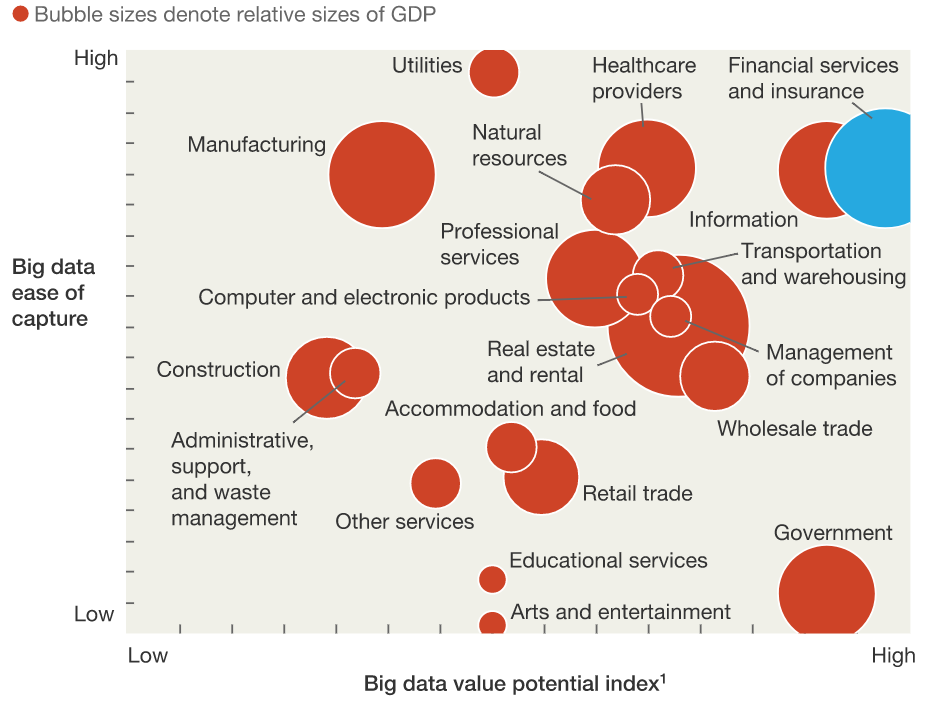McKinseys have recently published a paper discussing the rapid growth in the availability of big data and advanced analytics, including machine learning and how this will have will have a significant impact on virtually every part of the economy, including financial services.
The diagram below speaks to relative impact of these technologies in the industry far outweighing those in any other segment.

The firm’s update in January 2018 , states that the enterprise winners will focus on microverticals in promising industries. Baking is called out with banks beginning to use AI to detect suspicious behavior. AI algorithms can also help process transactions and make decisions, often with greater accuracy than human employees. For instance, AI algorithms might reveal that certain overlooked characteristics increase the odds that a particular transaction is non compliant.
At Fintech Bank we see AI playing out in compliance in a very major way. Collection practices and debt restructuring work best when closely aligned with borrowers’ changing circumstances and propensity to pay. Machine learning can help companies build robust dynamic models that are better able to segment delinquent borrowers, and even identify self-cure customers (that is, customers that proactively take action to improve their standing).
As traditional providers creak under the strains of business as usual and new regultory demands such as Open Banking Initiatives like PSD2, the market is ripe for de novo organisations to build best in class servcioes on a foundation of robotics and digital initelligence to better serve large parts of the market that are being ignored.
